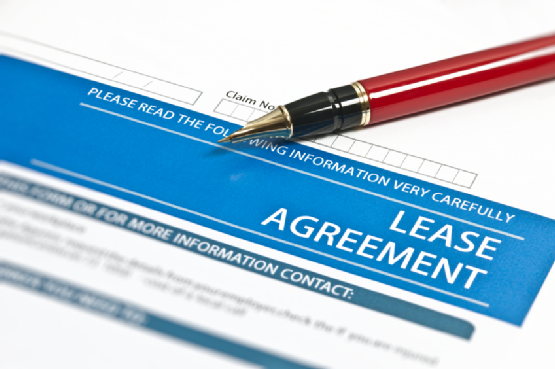How Tenants and Business Owners Negotiate Favorable Leases
Whether it is an office, industrial, or retail lease, startups typically have little leverage with landlords, if any at all. The good news is there are ways to negotiate for the best possible terms. I have compiled the 7 most important issues tenants, business owners, and occupiers of commercial real estate startups need to keep in mind when thinking about committing to a commercial lease.
#1: Get Representation
That means hire a commercial real estate broker that is not only familiar with your industry and location, but also specializes in Tenant Representation. Brokers that exclusively represent tenants have your best interests at heart because they eliminate the conflict of interest. A broker who also represents landlords is representing the landlord’s best interests and can easily take advantage of the situation, especially when it comes to getting out of a lease or renegotiating. Get referrals from other business owners, tenants in the building, etc. Make sure to ask the broker what specific leases they have done in the building, or at least the particular submarket. Commercial markets are so specialized, someone who is not up-to-date is not going to be able to get you the best deal.
#2: Understand What Your Rent Covers!
“Rent” may not include everything. For example, will rent cover utilities and if so, which ones? What about parking, janitorial services, property taxes, insurance, and maintenance of the common areas? These are all questions that need to be asked and the costs considered. There is no such thing as a standard lease. Everything is negotiable. If you often work late or on the weekends, make sure there is no extra charge for keeping the buildings HVAC systems on after hours. And don’t forget your employees: Do amenities such as break rooms, conference rooms, on-site gyms, cafés, and wifi-enabled areas come with the package?
#3: Weigh the Location’s Pros and Cons
An impressive address is mandatory, but only for certain businesses. That glamourous address or neighborhood will not only come with a higher rent, but also higher taxes, business license fees, and often times paid parking. Access to freeways, amenities and proximity to universities, clients and competitors are also important factors to consider.
#4: Push for Landlord Concessions
Real estate markets are cyclical and this item is completely contingent on where we are in a particular cycle. In softer real estate markets, landlords have commonly offered concessions such as tenant improvements, a couple months of free rent, moving allowances, free parking, and signage just to name a few. As the market heats up, those concessions may go away or they may be offered but only on longer leases. Oftentimes, shorter leases are better for young companies growing quickly because of the flexibility it provides. But, if you like your space and want to stay long term, try to lock in longer terms before rents go up.
#5: Consider a Cap.
Both management and operating fees can get out of control, particularly if they go up unchecked annually on long-term leases. It is important to consider a cap on management and operating fees based upon a percentage of your base rent.
#6: Insist on an Emergency Valve.
Make sure your leases includes language that allows you to leave. You may be wildly successful and quickly outgrow the space, or struggle to make rent each month. Either way, you want the ability to get out sooner as opposed to later. Common negotiable items in this situation include sublease and assignment language, and termination rights. Some landlords will insist they must consent before you can transfer your lease because you sell your company, and others will require that you sign a personal guarantee, particularly if you are a start-up or an S-Corp. Make sure all these details are spelled out up front and include timeframes in which the landlord has to respond to your request. As a business owner you do not want to have a deal held up or even fall through because you are waiting for the landlord to respond.
#7: Give Yourself Time!!
Perhaps the second most important item on this list following “Use Representation”. Far too many people wait 30-60 days before the lease expiration to decide whether it’s beneficial to renew or relocate. Don’t just factor in movers, but also company downtime, employee disruption, reprinting of marketing materials, and notifying clients and vendors. If you decide to move, it could take 6 to 8 weeks to identify a property, another 3 to 4 weeks to negotiate the terms, and a couple more weeks to negotiate lease comments. Even if you decide to renew the lease, I cannot stress enough the importance of opening communication with the landlord a minimum of six months in advance. Depending on the size and complexity of your office space requirement you should allow, at a minimum, the following lead times to negotiate your lease:
Office Size: Lead Time:
1,000 – 3,000 SF 4 to 6 months
3,000 – 10,000 SF 6 to 12 months
10,000 – 20,000 SF 12 to 18 months
Above 20,000 SF Up to two years in advance









